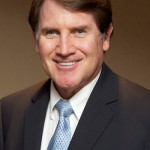Imagine there was no DTC advertising because of a government ban. Let’s put aside the free speech issues for a moment and assume the courts supported a ban. Also let’s assume the health care system is similar to what we have now. That is, it is still a mix of private insurers, Medicare, Medicaid, with free market pricing for drug makers. I am not saying a ban will happen but it is possible given the hostility towards drug companies.

-Bob Ehrlich
Let’s examine what this world of no DTC means for the constituencies of health care. First, what would happen to drug sales? If we assume an ROI of $2 per $1 invested in DTC which is probably in the ballpark then drug companies will lose about $7 billion in annual sales. That is based on an actual estimated drug company DTC spending of around $3.5 billion versus Nielsen reported at $5.2 billion. Why? Drug makers get large discounts not accounted for in the reported numbers. Insiders tell me they spend about 70% of reported numbers.
That $7 billion dollar loss is only about 2% of total drug sales so it is not an industry killer. It does hurt newer drugs more because they use DTC to accelerate the awareness curve. It may also hurt high price drugs more because advertising those drugs puts pressure on insurers to cover them.
Congress would likely be happy with no DTC because they falsely think demand would decline for branded drugs. Unfortunately, they would soon find out that drug makers will ramp up physician promotion instead and make up for lost consumer awareness. Consumers would be back to having less information and trusting that physicians and insurers have their best interests at heart. We know physicians may not be up to date on newer drugs and insurers do not want to pay for expensive drugs. So, I am afraid consumers may not be informed there are newer drugs available.
Physicians may like a ban because consumers will not ask them about an advertised drug. On the other hand, DTC brings patients in the door and that means opportunities to do reimbursed tests and services. I am sure dermatologists, psychiatrists, ophthalmologists, podiatrists, cosmetic surgeons, and other specialties benefit by increased traffic from DTC. Physicians need to get used to the new world where patient information is widely available and trying to restrict it is just not practical.
Insurers would love a no DTC world because they can negotiate without those pesky consumers wanting to know if they cover expensive drugs like Harvoni, Keytruda, or Opdivo. Drug companies will try to negotiate fast access but I suspect formulary access will be delayed without consumer pressure.
What will happen to price under a DTC ban? Drug companies will not lower prices because there is no DTC. There is a general misconception that DTC expenditures are a cause of high prices. That is false. DTC, if successful, raises demand that more than offsets the cost. Therefore sales will be less without DTC so why would a drug maker lower prices? DTC allows new brands to enter faster and create competition which will lead to lower prices. Banning DTC ensures the established brand can keep its leadership longer and prices higher.
Banning DTC may make critics feel better but will have very minor impact on demand, pricing, and overuse. Instead less information will be available to consumers who will now have to trust biased insurers and busy doctors to suggest what is best for them. We all recognize DTC is meant to advocate use of a drug and is not unbiased information. Our healthcare system, because it is a mix of profit making entities and government payers concerned about budget, is inherently subjective. Therefore, banning DTC just leaves other constituencies to their push their own biases about what is best for patients.
A world without DTC will not make the patient better off. Drug critics were complaining about drug prices before DTC and will continue even if it is banned. Unfortunately, DTC has become an easy target and will remain in the crosshairs of legislators, physician groups, and insurers. As a DTC community, we must tell lawmakers the facts and the dangers of limiting speech.

